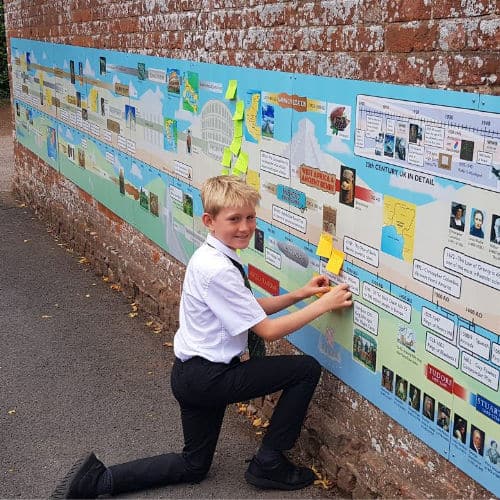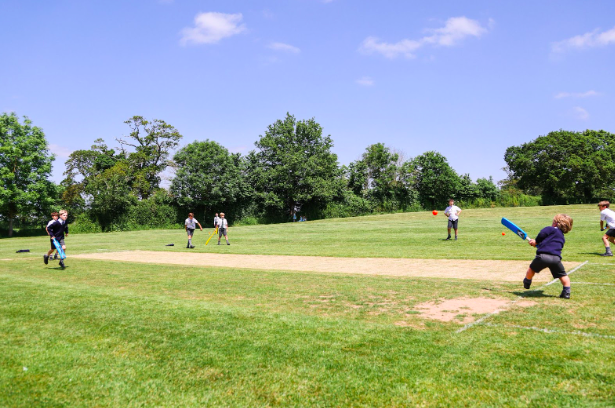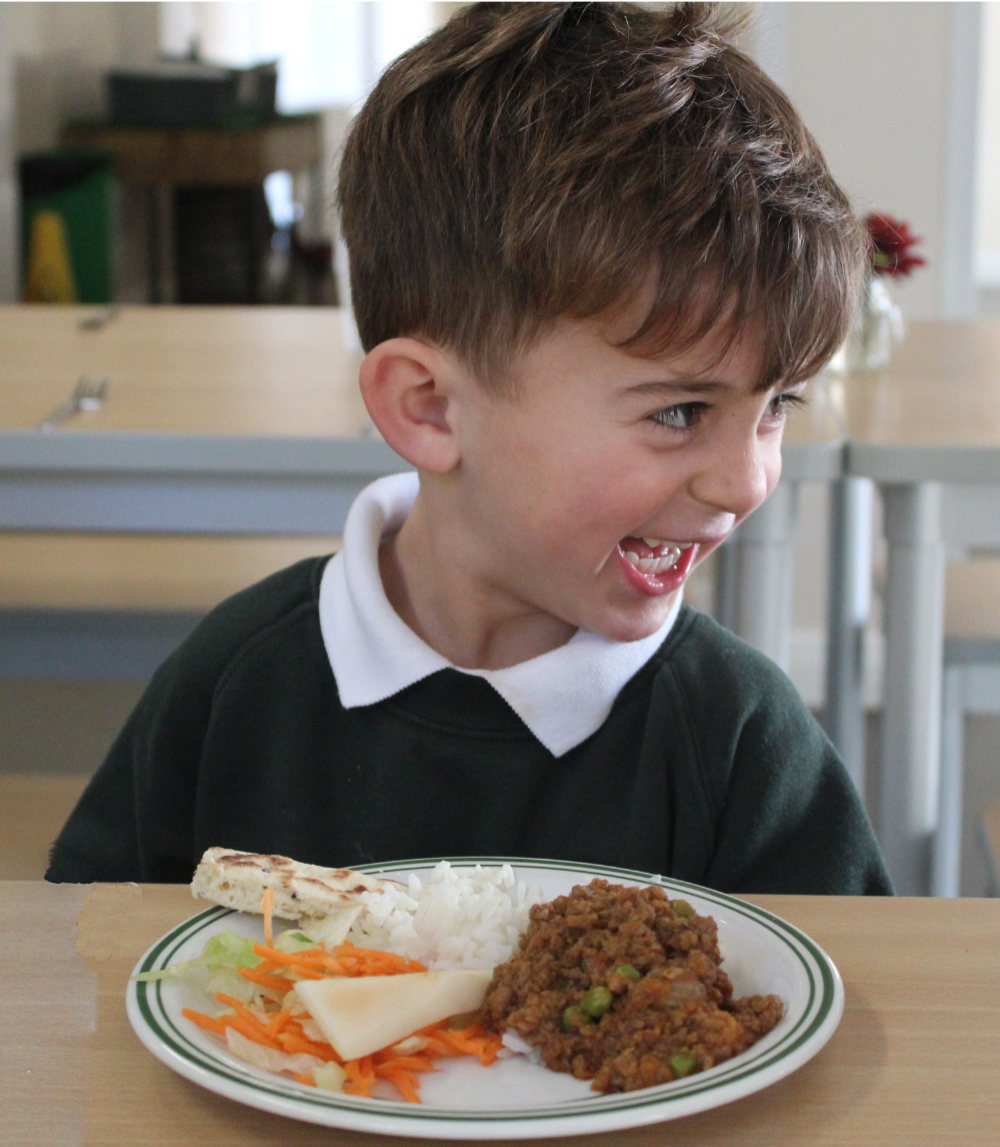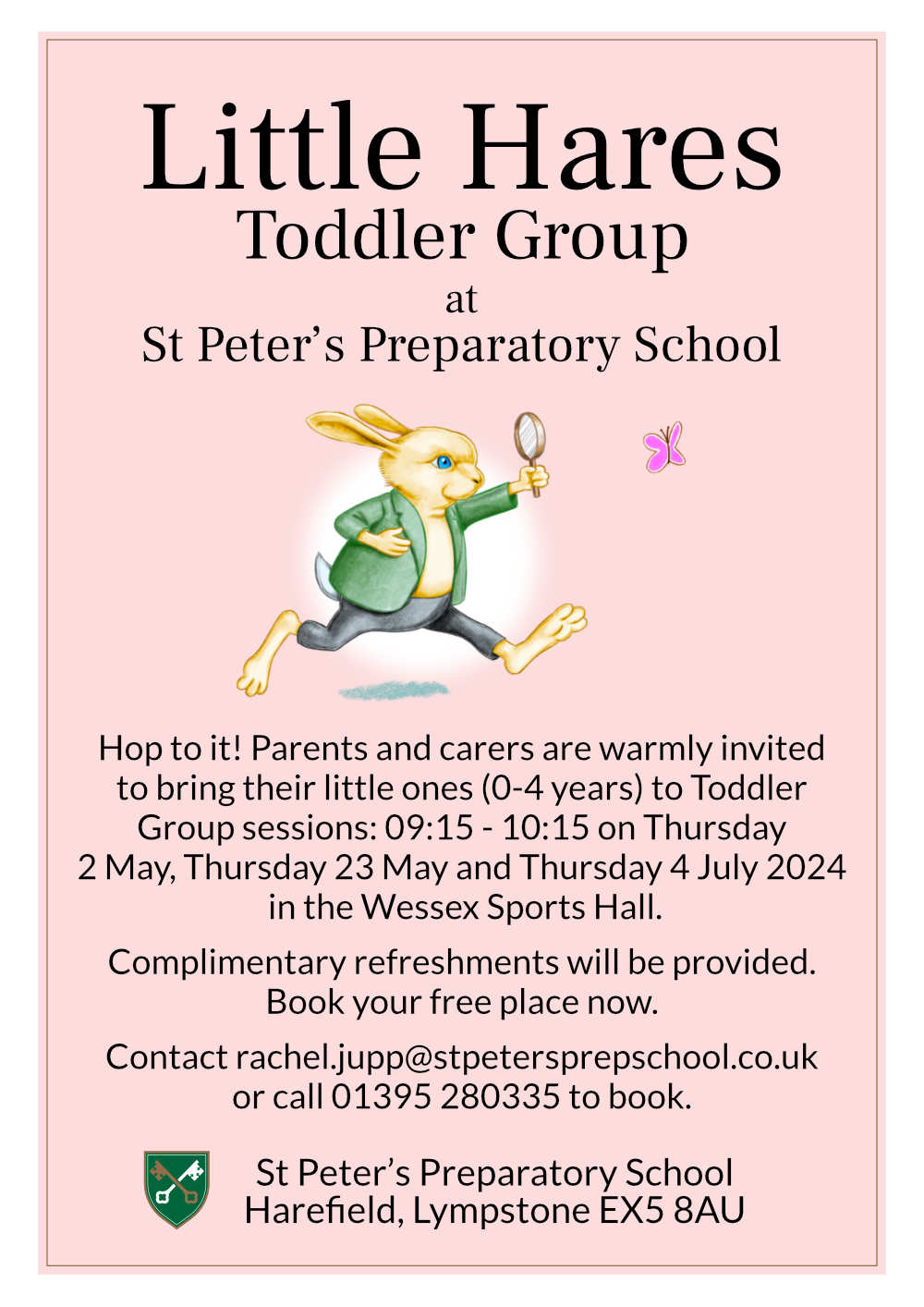Chronology is an age old argued topic amongst History teachers around the world.
For my two pennies worth; I believe that you do not have to teach History in chronological order. I also see little evidence that by teaching History in chronological order, it improves children’s overall understanding of the past.
I do, however, think that it is vital that all our children are able to make links between their history learning, so it does not compartmentalise their knowledge. Most would agree that some key historical facts and events are required to be memorised so that children are able to describe key features of the timeline of human history.
The St Peter’s Faculty Team has spent much of the 2018-2019 academic year discussing plans for a sure-fire method to effectively teach chronology and enable us to show progression throughout the whole 3-13 age phase. We know that this in turn will have an effect on pupils’ ability to memorise facts and figures. The Humanities faculty has been very busy indeed. Hence our new (much mentioned) outdoor timeline, altered planning, altered projects and chronological links being at the centre of our mission.
We want to support the children to be able to place themselves. We will regularly be referring to chronology of every subject: Famous scientists, mathematicians, artists, inventors, musicians and athletes. Biblical significance. Religious changes. Major battles, world events and political movements. In short: all major Geographical and Historical events feature at some point in our curriculum planners. And all of these landmarked against one constant framework. One strong image for the brain to memorise. Something, if you will, for children to ‘pin’ their thinking upon. Children are often found in their own time pointing to different landmarks and reading the notes. This Google generation can now locate and find out more for themselves!

Onto the memorisation link with chronology:
Mr Hoban, our Director of Music, is a huge spokesman for the subject of memorisation and its importance in today’s Google world (He also happens to be a bit of a History buff)! As i previously mentioned, we are building an assembly programme that has been designed to aid both chronological knowledge of History and the learning skill of memorisation. We plan to use these times for bringing forward wider world issues to be discussed and cover ‘general knowledge’; raising awareness during tutor time.
This INSET session was led by Mr Hoban…
MEMORISATION
HYPOTHESIS: THE MEMORY SKILLS OF TODAY’S PUPILS ARE IN DECLINE
AIM: TO IMPROVE THE MEMORY SKILLS OF OUR PUPILS IN ORDER TO ENHANCE THEIR LEARNING
Kirschner: “The aim of all instruction is to alter long-term memory”
MEMORY HISTORY
- In pre-writing eras, memory was the only way to record anything
- Alphabet in approx 2000BC began to change our ability to record information
- In the classical era, the teaching of memory was incredibly important
- “Memory Palace” – the story of Simonides; remembering large amounts of data through imagining it in a spatial context – essentially a pictorial method
- Pictorial survived until reformation / invention of the printing press
- Printing press standardised some systems of education & schools of thought – e.g. Book of Common Prayer
- Jesuit missionaries to China brought back new classroom layout / standardised testing through examinations; success in examinations is heavily dependent on the ability to have a good memory.
- Significant decline of memory ability in past few generations owing to:
Technology (photocopier, PC, internet, interactive whiteboards, phones / tablets)
Changes in educational theory, curriculum & approaches to teaching
Teachers coming from a much wider range of backgrounds / schools of thought
MEMORY SCIENCE
Our memories are incredibly powerful.
Neuroscience stresses importance of hippocampus and function as a filing system for memories stored in many other parts of the brain.
Left hippocampus, memory index; right hippocampus, imagination.
Hippocampus is particularly interested in new associations & material.
Powerful memory connections through senses – taste / smell, music, location etc.
Memory evolved as a prediction tool, to help us cope with future events.
Crucial difference between WORKING MEMORY & LONG TERM MEMORY.
WORKING MEMORY only able to hold 3 to 4 bits of info at a time. Easily overloaded.
LONG TERM MEMORY is much more powerful & integral to all our mental processes.
Conventional belief – memory as a kind of library that stores data, waiting to be retrieved.
However: autobiographical memories are NOT possessions that you either have or do not have. They are mental constructions, created in the present moment, according to the demands of the present.
When you access a memory, you create something new each time.
Memories are changed by the process of reconstruction.

Here is Dr Evans during last week’s service explaining to the children what the Bible is made up of.
BIBLE: New & Old testament, Books, Chapters, Verses, lines. During this assembly we were studying Psalm 23 and all children were asked to memorise line one:
The Lord is my Shepherd; I shall not want
He maketh me to lie down in green pastures
He leadeth me beside still waters
He restoreth my soul; he leadeth me in the paths
of righteousness for his name’s sake
Yea, though I walk through the valley of the
Shadow of death, i will fear no evil:for thou
art with me; thy rod and thy staff they comfort me
Thou preparest a table before me in the presence
of mine enemies: thou anointest my head with
oil; my cup runneth over
Surely goodness and mercy shall follow me all the
Days of my life: and I will dwell in the house
Of the Lord forever
All staff are looking for opportunities for implementing these 19 TOP TIPS for improving memory in the classroom!
1. REPETITION:
“Experience wires the brain; repetition strengthens the wiring.”
2. DISPLAYS
Effective use of displays can be a huge memory reinforcement aid.
3. RELEVANCE
If people don’t believe it’ll be relevant to them in the future – they’re very likely to forget it.
4. THINKING. Especially important at the very outset of a new learning concept.
5. BE A MEMORY ENTHUSIAST – let’s celebrate it! E.g. Years 1-4 – “Memory star” corner.
6. COMEDY. If something’s entertaining, it’s memorable.
7. CURIOSITY: improves memory by tapping into the brain’s reward system – dopamine. Light the fire of curiosity you put the brain into a state that’s more conducive to learning.
8. EXPERIENCE – followed by REFLECTION & REINFORCEMENT.
(a) Pure information is very easy to forget; (b) The brain LOVES to remember NARRATIVE
e.g. Pythagoras’ Theorem
9. LEGACY: A POETRY BOOK & A DICTIONARY
Permanent fixtures in their transient school lives; linear structures in curricula help
10. SCHEMAE / FRAMES OF REFERENCE – “PIN THE TAIL ON THE DONKEY”
In order for pupils to remember new information, they have to know where to place it.
A good general knowledge is essential for a good memory
11. MUSIC & POETRY; multi-sensory memorisation.
12. MULTI-SENSORY
e.g. A smell is paired with a picture; French, boulangerie etc.
13. “BY HEART” – for homework, one piece every 2 week?
14. JUGGLING – significantly increases white matter (wiring) in brain
15. CONSISTENCY –Do we have same terminology, approaches, priorities in our subjects?
16. HYDRATION: 10% dehydration = 90% memory reduction
17. DISCOURAGE RELIANCE ON “OUTSOURCED” MEMORY – E.G. Internet
18. MUSCULAR MEMORY
19. SLEEP
Lucy Ball
Deputy Head teaching and Learning









